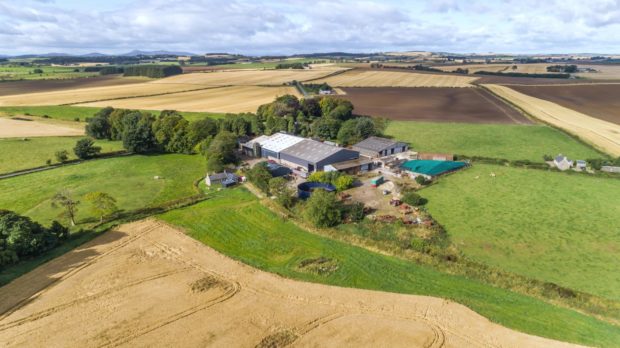A record low amount of Scottish farms being offered for sale helped buoy the land market last year, according to Strutt and Parker.
Analysis by the land agency reveals 13,100 acres were advertised for sale in 2020. This is the lowest on record and compares to a five-year average of 32,800 acres.
It also found 82% of the farms offered for sale successfully found a buyer during the year – up 26% on 2019 – and there was an increase in the number of off-market deals.
Estimates suggest up to 30% of farms for sale during the year were available on a private basis.
“Spring 2020 brought us the unknown world of lockdown and travel restrictions, and prospective sellers were also cautious to commit to selling faced with additional uncertainties caused by Brexit and whether or not a trade deal with the EU would be agreed,” said Strutt and Parker farm agent Diane Fleming.
“Active buyers did not show the same restraint, competing vigorously for those farms available for sale, which saw demand quickly outstrip supply.”
She said the market was also boosted by an increase in lifestyle buyers looking for smaller holdings and continued interest in land suitable for planting trees.
The analysis found prime arable values remained strong during the year with the price of first-class arable land peaking at £16,000 per acre due to a combination of low supply and high demand from successful agricultural businesses looking to expand.
Secondary arable land values ranged between £3,000 and £6,000 per acre, while grass leys made between £2,500 and £5,250 per acre.
Ms Fleming said farmer buyers accounted for the majority of arable land and grass leys purchases in 2020. However forestry buyers dominated the hill ground market.
She said hill ground suitable for planting trees achieved prices of up to £3,000 per acre, and the price forestry buyers were prepared to pay for this class of land was up to 30 times higher than it was a decade ago.
“As seen in recent years, strong prices are continually paid for land with afforestation potential,” added Ms Fleming.
“Tree planting is backed by government support and afforestation commitments in the quest to attain carbon neutrality.
“Private companies and investors are also keen to acquire forests, plant trees or purchase carbon credits to offset their carbon footprint.”
Looking ahead to the market this year, Ms Fleming predicted a more even balance between supply and demand, due to more farms coming to the market.
She said: “We are confident that the farmland market in 2021 will provide much more variety for purchasers, whilst continuing to deliver strong results for sellers.”
